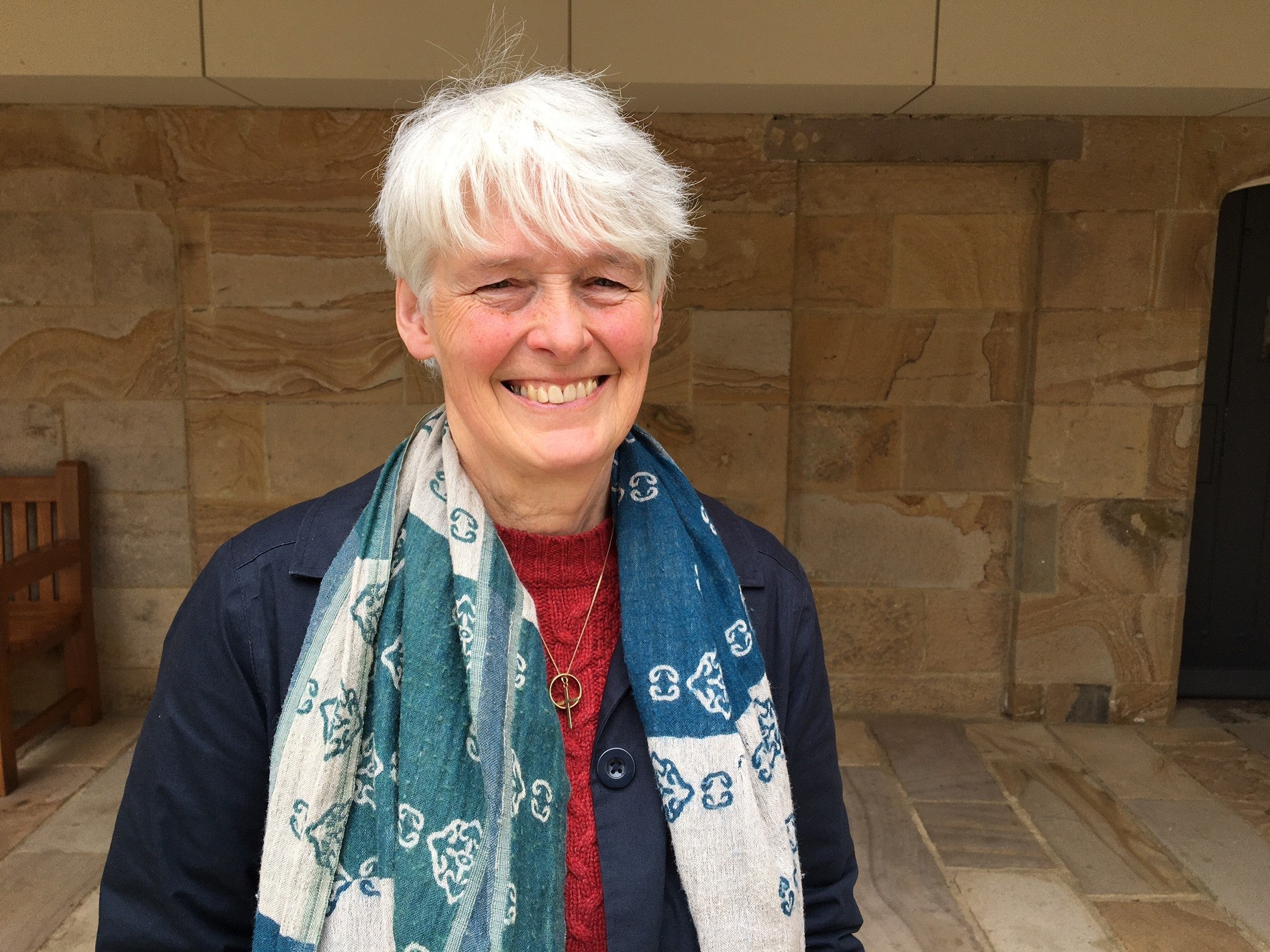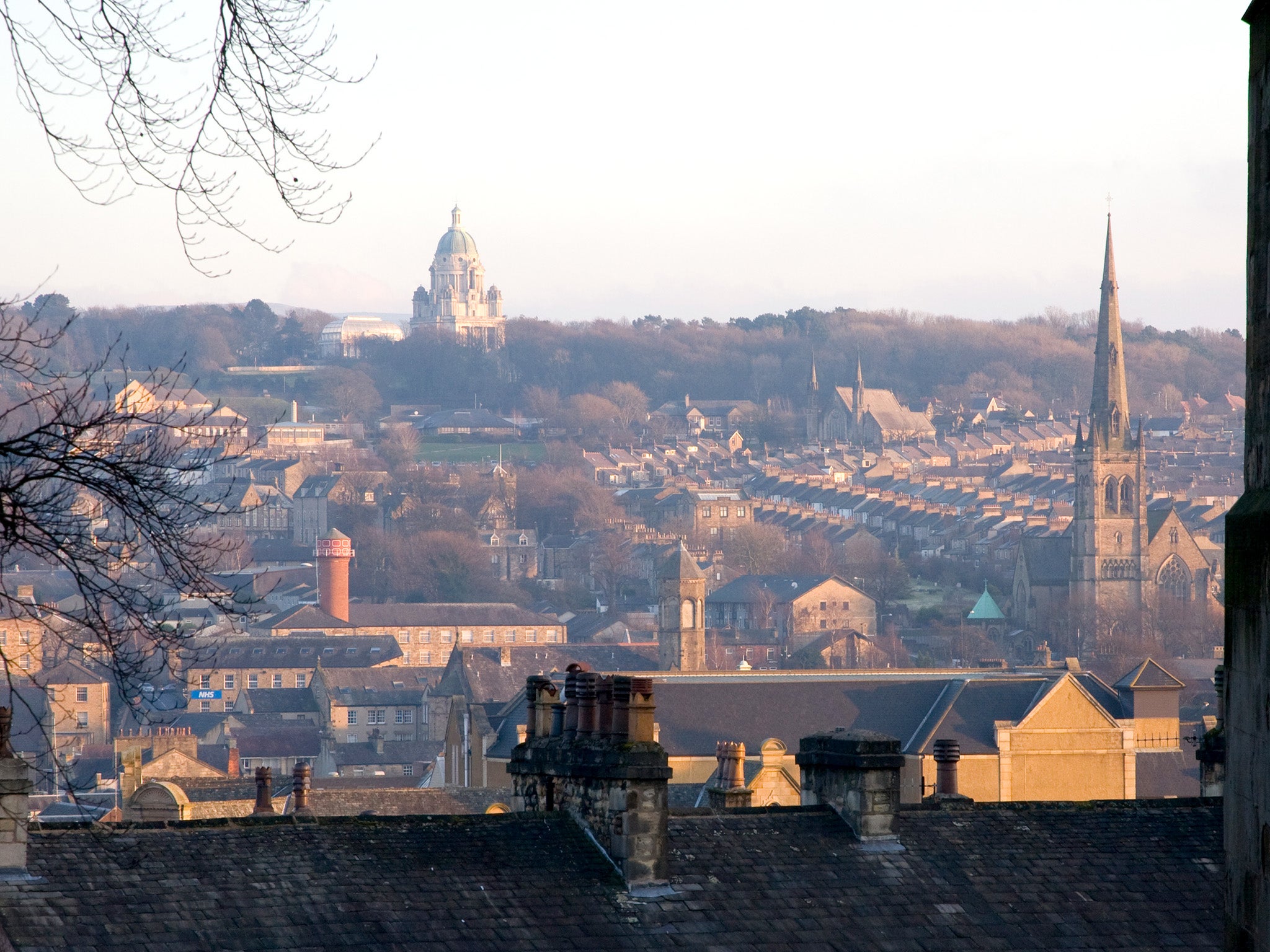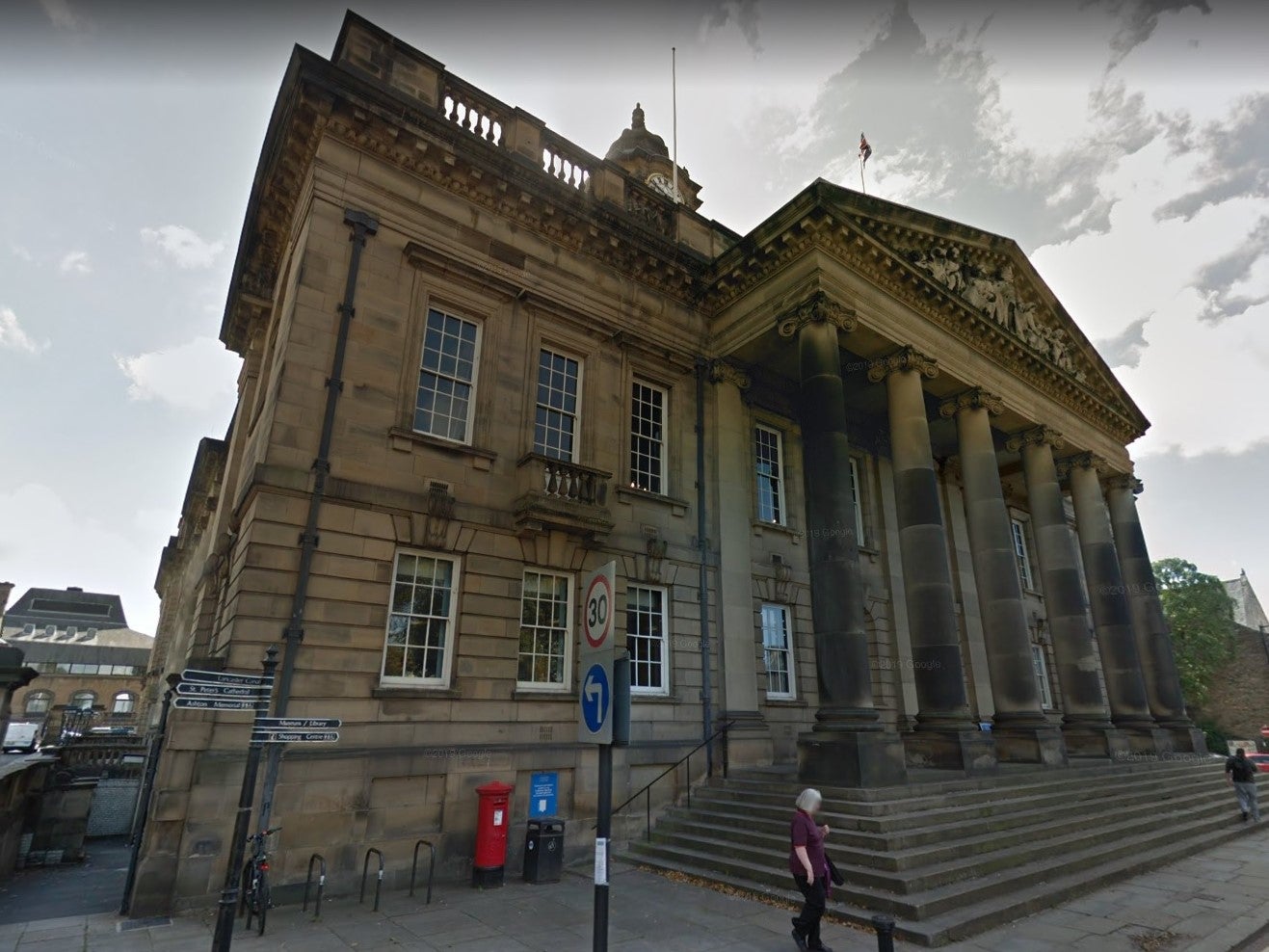Protests, arrests and community gardens: how north’s first ever Green council leader took party to power
In 2017 Caroline Jackson received a criminal conviction for her part in fracking protests. Today, she leads Lancaster Council. She tells Colin Drury her party can become a major force in old red wall


Your support helps us to tell the story
From reproductive rights to climate change to Big Tech, The Independent is on the ground when the story is developing. Whether it's investigating the financials of Elon Musk's pro-Trump PAC or producing our latest documentary, 'The A Word', which shines a light on the American women fighting for reproductive rights, we know how important it is to parse out the facts from the messaging.
At such a critical moment in US history, we need reporters on the ground. Your donation allows us to keep sending journalists to speak to both sides of the story.
The Independent is trusted by Americans across the entire political spectrum. And unlike many other quality news outlets, we choose not to lock Americans out of our reporting and analysis with paywalls. We believe quality journalism should be available to everyone, paid for by those who can afford it.
Your support makes all the difference.In a month of political drama – the Hartlepool by-election, the city mayor contests, the local lockdowns that never were – it was a moment that was all but ignored by much of the media.
When retired headteacher Caroline Jackson was elected leader of Lancaster City Council last week, it registered barely a ripple in Westminster.
Yet, amid the national focus on the collapsing “red wall” and regional devolution, it may in fact be the grandmother-of-four’s rise to power in this small northwest city that signals the start of a far more significant political shift.
Why so?
Because her election has just made Lancaster the only Green-led authority anywhere in England outside of the group’s traditional enclave of Brighton. By seizing control here, the party has established a northern toehold which even it appears to have not entirely expected.
Now, if Jackson can be a success, it could pave the way for further, bigger electoral gains in coming years. Whatever she achieves here will be held up to voters across the country – specifically voters across Labour’s old northern heartlands – as an example of just what the Greens can do in power.
Which is to say that with Green parties across the world already on a demonstrably upward trajectory – indeed, in Germany, the party sits on the cusp of national power – what happens now in this historic city of 145,000 people could influence the entire UK’s future political map.
So, Councillor Jackson, no pressure?
“Well, when you put it like that, it is rather daunting,” the 67-year-old says. “But it’s also very humbling. We have a really strong agenda here and the chance to put it into reality is very exciting.”
What’s on it? City solar farms, community growing gardens, electric bin lorries, and a canalside regeneration that would see car parks, brown land and historic buildings transformed into mixed city centre homes, independent shops and open public spaces.
It sounds like a utopia of sorts. Can Jackson do all that in the two years she now has as leader?
“Obviously not,” she says. “But it’s about building a consensus that these things need to happen and creating a framework in which they can be progressed.
“I’m not going to sit here and promise to deliver on one particular vanity project but … what I will do is say is everything we do from now on will have two things at heart: dealing with the climate emergency and listening to our local communities.”

We are talking today in the blood-and-treason atmosphere of Lancaster’s medieval castle – or, at least, in the latte-and-pastry atmosphere of its cafe.
This is because Jackson, despite being a week into the job, does not yet have an office. Lancaster Town Hall is currently being used to vaccinate people against Covid-19. But the fortress surroundings feel sort of appropriate anyway because, to some extent, this amiable practising Christian actually came to power in what some might call a coup.
For the last two years, her party had been the junior member of a ruling coalition with the larger Labour group. Then, last week, after growing increasingly frustrated with their allies, the Greens walked out of the arrangement. They joined forces with a rainbow collective of local groups and, despite having four fewer seats than Labour and three fewer than the Tories, swiped the council leadership.
“We just sort of said that we thought it was our turn to have a go at running things,” Jackson says. “And the majority of the chamber agreed.”
As it happened, that included the Tories, which led to accusations (encouraged by the local Labour MP Cat Smith) of backdoor deals.
One suggestion – since shown to be untrue – was that, in return for their support, the Tories would be given cabinet seats.
“It was an absolute smear,” says Jackson. “We didn’t go round doing deals or touting ourselves. But we need a politics here that listens to everybody because it had become knock-about, and that’s not how you get things done at a local level. The leadership had become abrasive ... and it was causing people to take away their support for the things we wanted to do. Like dealing with the climate emergency. You can’t alienate half the chamber and then expect them to work with you.”
Many on the left would see uniting with the Conservatives – even for one vote – as anathema to everything the Greens should stand for.
“Yes, and I’ve seen the abuse on social media,” she says. “My reply is the same: when you’re dealing with something as serious as the environment, you can only make things happen by bringing people on board. But I’m no Tory. Tories don’t get arrested at anti-fracking protests.”
Ah yes. Jackson may also be the first council leader with a criminal conviction for taking part in an environmental protest.
In 2017 she and two friends locked themselves together outside Lancashire’s now infamous Cuadrilla site in a bid to highlight the environmental and human disaster that came with fracking.
“There was a lot in the media suggesting that those protesting were all professional protesters,” she says. “And it wasn’t true. So, we decided that, as three older, kind-of respectable women, if we got arrested, it would represent the kind of people who were really there far more accurately. It would show it was people who cared about their communities.”
The trio were arrested and chucked in the cells, with Jackson fined £240 for obstructing a highway – but, she says, history proved their actions right. Two years later the government announced there would be no more fracking in the UK after a series of minor earthquakes were linked to the work.

Jackson herself came to politics relatively late in life. She was born in Bexhill, brought up as one of eight siblings in London, went to university in Oxford, and then taught at schools in Birmingham and Manchester before ending up in Lancaster.
When she stopped working eight years ago, she wanted to give something back to the only city that had ever felt like home and used her redundancy money to set up a six-acre community growing project called Claver Hill.
Around the same time, two things turned her towards the Green Party.
The first was a growing unease that no one in power was truly taking global warming seriously. The second was a period helping run the Morecambe Bay Poverty Truth Commission, a project set up to tackle deprivation in the nearby coastal town. As part of that, she became convinced that the approach of both Labour and the Tories to so-called left behind communities was only exacerbating deprivation within them.
“What happens is that those parties take decisions on behalf of people rather than actually involving them,” she says. “There is a ‘we know best’ attitude. But someone sat in London doesn’t know what’s best for a person living on the far end of those decisions. They must be community led, I’m absolutely certain of that – which is exactly what the Greens have always championed.”
Whether this is now the start of a new eco-insurgence remains to be seen.
It is worth remembering that Lancaster – almost 92 per cent white with higher than average employment and educational attainment rates – is not necessarily representative of the wider north. Indeed, while the city is now led by the party, the region’s upper tier authority, Lancashire, remains resolutely Tory.
Yet the evidence of a shift is not easily dismissed.
At this month’s local elections, the party gained 99 council seats, taking its total to 445. It now shares power in two of England’s biggest cities, Bristol and Sheffield; and is the second biggest party in Solihull and Knowsley.
As Dr Matthew Johnson, a lecturer in politics at Lancaster University puts it, the challenge now may be “showing that the Greens can be a party of radical power as well as of radical protest”.
Jackson considers this.
“Well, protesting is absolutely necessary” she says. “But, of course, you don’t get elected by protesting alone. You get elected by getting into your communities and doing the nitty gritty work that matters to people’s everyday lives: helping with neighbourhood clean-ups, getting bin issues sorted, saving people money on energy bills. You show people that you are on their side.”
Can she envisage a Green wave coming? “I don’t think we’ll be the last Green-led council,” she says. “But there is more hard work to be done.”
This article was amended on 5 June 2021 to clarify that MP Cat Smith made no explicit suggestion that the Greens and the Conservatives had done a deal involving cabinet seats. Ms Smith stated that the ‘Tories and Greens have joined forces to end the Progressive Alliance’ and also that the Greens had ‘jump(ed) into bed with the Tories’.
Join our commenting forum
Join thought-provoking conversations, follow other Independent readers and see their replies
Comments